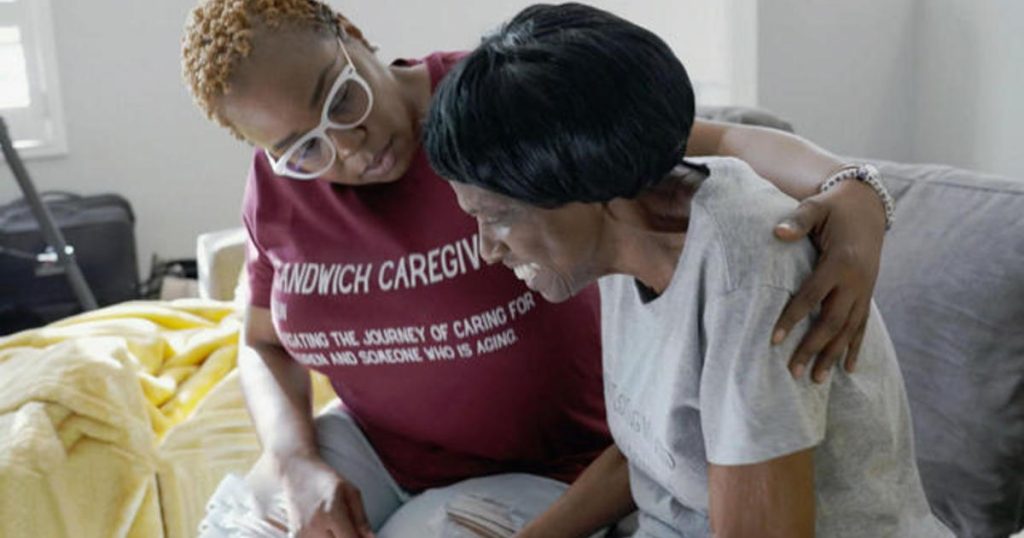Across the United States, there are an estimated 53 million unpaid caregivers, many of whom are part of the “sandwich generation.” This includes individuals like Ty Lewis, a social media influencer who shares her experiences caring for her mother, who suffers from Alzheimer’s disease, on Instagram. Seeking support from her followers, Lewis found that her page rapidly grew as people responded to her honesty and vulnerability. Her mother requires around-the-clock care, an all-consuming task that Lewis and her husband manage while raising their two daughters.
Despite the financial strain, Lewis and her family continue to provide care for her mother. Medicare does not cover long-term care, leaving families like Lewis to fill the financial gap for seniors who need care. Lewis revealed that her mother’s caregiving expenses reached $90,000 last year, with only $66,000 covered by pension, forcing the family to supplement the rest. She shared that they work multiple jobs to make ends meet, highlighting the financial challenges faced by many families in similar situations.
The financial strain of caregiving is widespread, with half of American adults unsure if they can afford necessary care. The costs of at-home care average $61,000 annually in the U.S., while a private room in a nursing home nearly doubles that expense. Nicole Jorwic, chief of advocacy and campaigns for Caring Across Generations, described the situation as “beyond a crisis point,” advocating for government action to support family caregivers who provide $600 billion of unpaid care annually. Despite the challenges, Lewis remains determined, emphasizing the need for support and policy changes to address the growing crisis in caregiving.
In February, Lewis’ mother qualified for In-Home Supportive Services (IHSS), a California program that provides caregiving support. As of the end of April, Lewis still does not know how many hours of care her mother will receive or when it will begin. This uncertainty reflects the challenges faced by many caregivers in navigating available resources and support systems. The ongoing struggle highlights the need for improved policies and resources to support caregivers, who play a crucial role in providing care for aging parents and loved ones.
Overall, the story of Ty Lewis and her family sheds light on the challenges faced by unpaid caregivers in the United States. From financial strains to the emotional toll of providing around-the-clock care, caregivers like Lewis juggle multiple responsibilities while seeking support and resources to help them in their caregiving journey. As the number of caregivers continues to rise, it is important for policymakers and organizations to address the growing crisis in caregiving and provide meaningful support for those who play a vital role in caring for seniors and loved ones in need.


